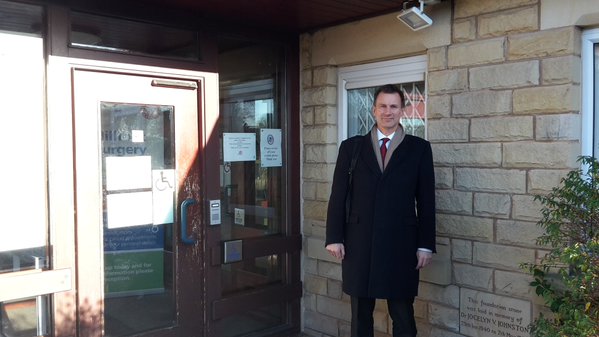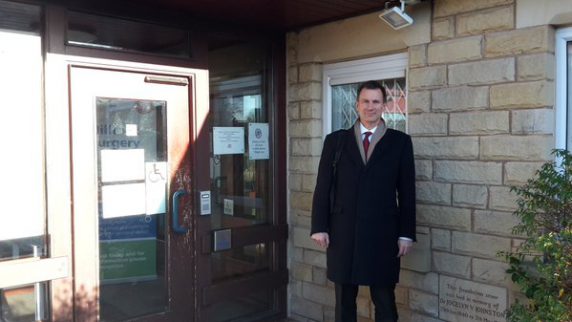
Jeremy Hunt – SUO
Jeremy Hunt visited our practice a few weeks ago and spent an hour listening to our views on the current state of general practice.
He arrived at the practice with two office assistants, just as we were finishing our weekly partners’ meeting, so it was four partners and our practice business manager who met with him.
We sat him down with a mug of tea and he seemed quite happy to sit and talk with us rather than have a grand tour. The concerns we expressed will not come as a surprise to any GP: funding, micromanagement, recruitment and retention, workload, trust & feeling valued.
We started by telling him that core funding is no longer sufficient to run a practice. We have to rely on income from multiple incentive schemes and enhanced services. We have too many pots of money which can only be spent on specific things and accounting for this needs multiple spreadsheets and a bureaucratic overhead.
Next, we told him that micromanagement of what we do in general practice distorts care and is a key cause of the increased stress felt by GPs. Professionals want to do a good job and Government should trust them to get on with it.
At this point Mr Hunt expressed a keenness to reduce the number of targets we have, but we told him it’s no good just replacing these with numerous ‘measures’ as has happened previously.
The opinions he was expressing in private to us weren’t how his opinions and actions were perceived in public
We also told Jeremy Hunt that trust and respect are key tenets of healthcare. Doctors (initially GPs, then consultants and now junior doctors) are vilified by Government and the press. People like to feel valued and trusted. It is a key component of the doctor-patient relationship and should be part of the government-doctor relationship.
We also addressed the issues of recruiting and retaining staff. Our practice lost a well-loved and experienced GP to unexpected early retirement last year. A more manageable workload and feeling valued by Government may have made a difference to her decision. We struggled to recruit for a replacement and additional doctor. We reminded him that there were unfilled GP training scheme places in Yorkshire last year and over 50% of F2 doctors decided to defer entering specialist training – a sad indictment of confidence in the future of the NHS.
Mr Hunt listened as we told him that there is a relentless increase in the workload in general practice: both in intensity and complexity. We have been working longer hours because we had been unable to recruit. He expressed confidence in his previous announcement that there would be an additional 5,000 GPs by the end of their term in Government.
On a couple of occasions I pointed out to him that the opinions he was expressing in private to us weren’t how his opinions and actions were perceived in public.
My daughter is a specialist trainee and we had medical students on placement with us, so we naturally discussed the junior doctor dispute. This was the only time he went into a politician mode of speaking to justify his position on this.
On his way out we showed him how time-consuming scanning on incoming correspondence was – I had pointed out that it would be much more efficient all round for hospital correspondence to be generated and transmitted to us electronically as a CDA message. The primary care GP systems are capable of consuming these messages but secondary care could do with some central direction to use this message format rather than come up with multiple different messaging systems across the country (he promised to look into this). We also gave him a quick overview of the Leeds Care Record – a real-time portal view of key patient data pulled from different health and social care units used for direct patient’s care.
Mr Hunt spent most of the hour listening to us. Only time will tell if this had any impact.
Dr Paul Maddy is a GP in Leeds

















